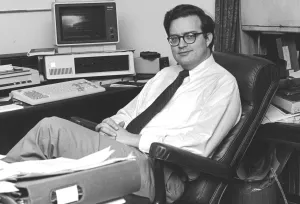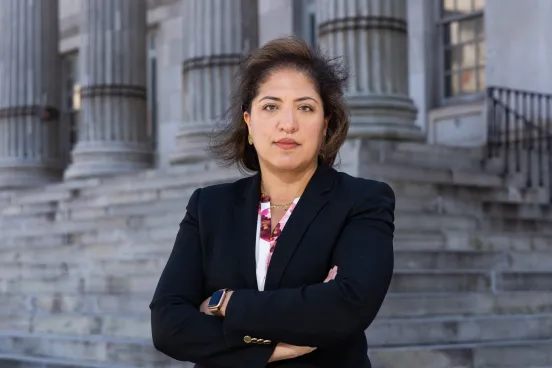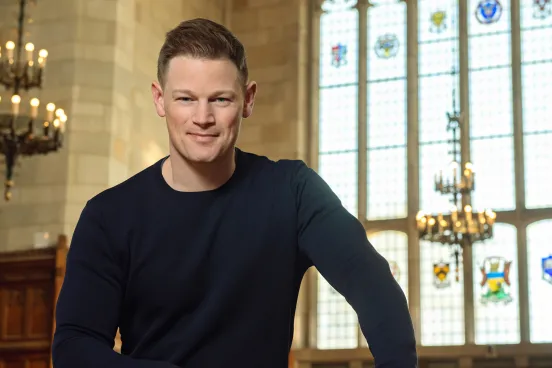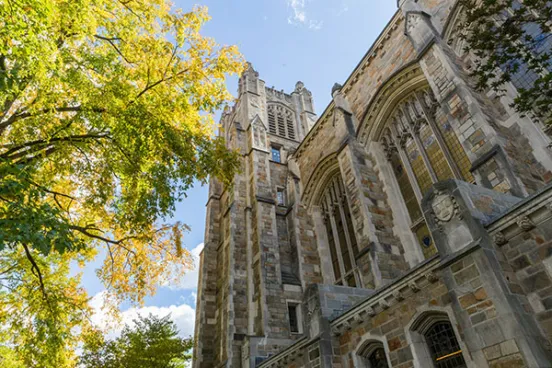
Carl E. Schneider, ’79, the Chauncey Stillman Professor Emeritus of Law, died on May 6, 2023. He was 75.
He leaves a legacy of teaching and scholarship that spanned several fields, including law and medicine, regulating research, property, law and morals, family law, art law, the sociology and ethics of the legal profession, and writing briefs. He also was a professor of internal medicine at the University of Michigan.
Schneider’s roots at Michigan Law ran deep. After earning his bachelor’s degree from Harvard University, he came to the Law School, where he was editor-in-chief of the Michigan Law Review. He went on to serve as law clerk to the Hon. Carl McGowan of the US Court of Appeals for the District of Columbia Circuit and to Justice Potter Stewart of the US Supreme Court.
In 1981, he became a member of the Law School faculty. According to Theodore St. Antoine, ’54, Dean Emeritus and the James E. and Sarah A. Degan Professor Emeritus of Law, “Carl was a superstar student and one of those very rare persons capable of moving quickly from student to faculty status.” He joined the Medical School faculty in 1998.
Schneider is remembered among his colleagues as an excellent writer who possessed tremendous intellectual capacity, with knowledge that extended beyond law and medicine to art, music, food, and travel.
“Carl was that rare academic whose ideas made a difference,” says Richard Lempert, the Eric Stein Distinguished University Professor Emeritus of Law and Sociology. “He wrote on disparate matters as an idea appealed to him, but perhaps contributed most widely on matters related to medicine and bioethics. What is to my mind his best work, his book on informed consent, opened people’s eyes to differences between an assumption-based ideal and the world in which most people live. It should be required reading on this topic.”
A central theme in Schneider’s scholarship criticizes some dominant regulatory ideas, particularly those in the law of medicine. For example, his book The Censor’s Hand: The Misregulation of Human Subject Research (The MIT Press, 2015) examines a regulatory system whose usefulness is widely assumed but quite unproved and argues that the system is so perversely constructed that it cannot help doing more harm than good. Another example is More Than You Wanted to Know: The Failure of Mandated Disclosure (Princeton University Press, 2014), co-authored with Omri Ben-Shahar. It explains why government-mandated disclosure may be the most adored, most used, and least successful regulatory method in our time. His book The Practice of Autonomy: Patients, Doctors, and Medical Decisions (Oxford University Press, 1998), which analyzes the malign effects of making patient autonomy the regulatory summum bonum, is another example of his scholarship at the intersection of law and patient care.
Schneider also co-authored two innovative casebooks: With Marsha Garrison, he wrote The Law of Bioethics: Individual Autonomy and Social Regulation, a pioneering work in what was then a new field, and with Margaret F. Brinig, he wrote An Invitation to Family Law (West, 2007, third edition). This casebook approaches family law conceptually—each chapter discusses an area of family law, and each chapter introduces students to a systematic discussion of a recurring jurisprudential issue (like the problem of rules and discretion, or the legal principle of autonomy).
Beyond his excellence as a scholar, Michigan Law faculty remember Schneider as an engaging colleague and mentor who approached discussions of others’ works in progress with enthusiasm.
“Carl was one of the many people in our community who started mentoring me as soon as I joined the faculty,” says Mark West, David A. Breach Dean of Law and Nippon Life Professor of Law. “Among the many roles he played in my life, he was one of the most careful—and demanding—readers of my work. He pushed me to be a better writer, listener, teacher, and colleague—all things he valued deeply.”
In addition to his work at the Law School, Schneider served two terms on the President’s Bioethics Council and was a visiting professor at Cambridge University, the University of Tokyo, Kyoto University, and the United States Air Force Academy.
He is survived by Joan, his wife of 50 years who was his partner in foreign travel, the enjoyment of fine cooking, and the collection of photographic art.





